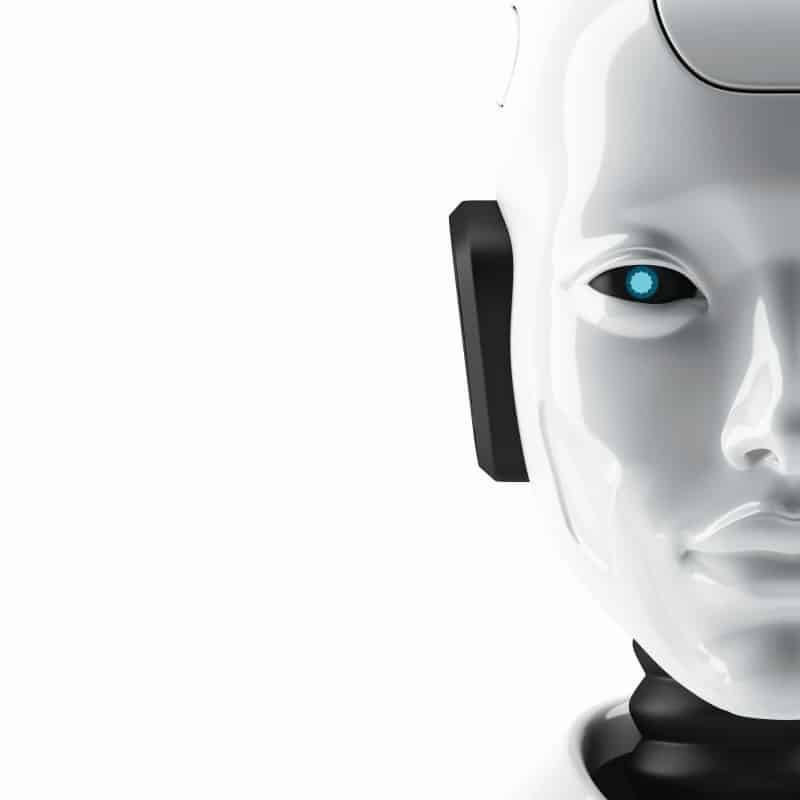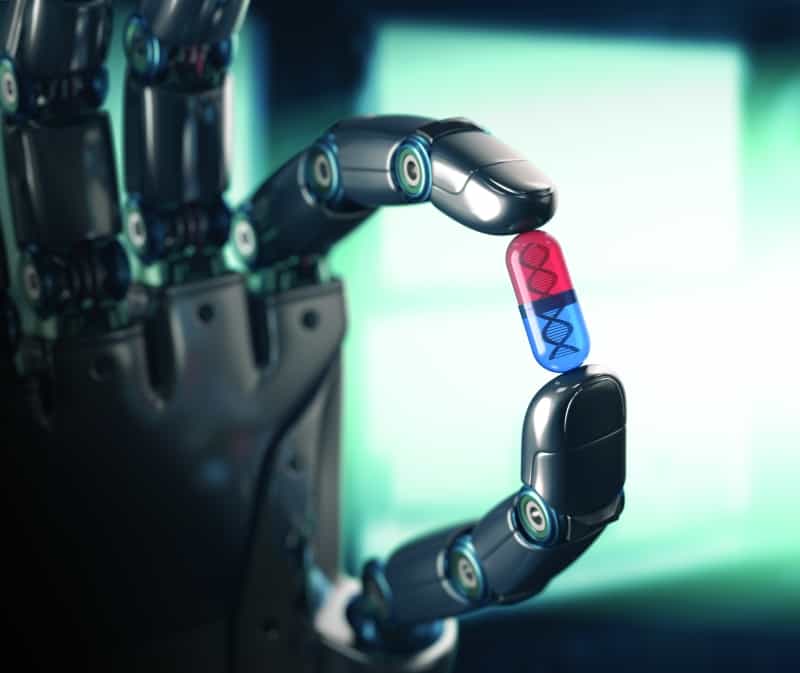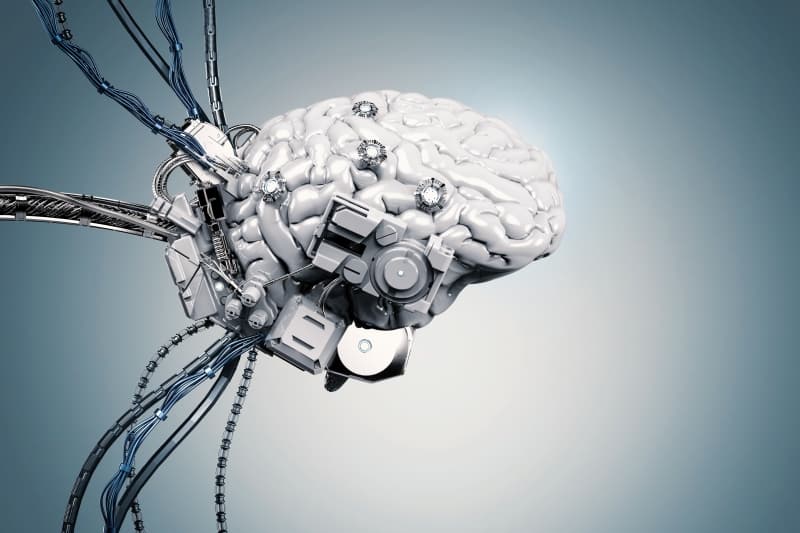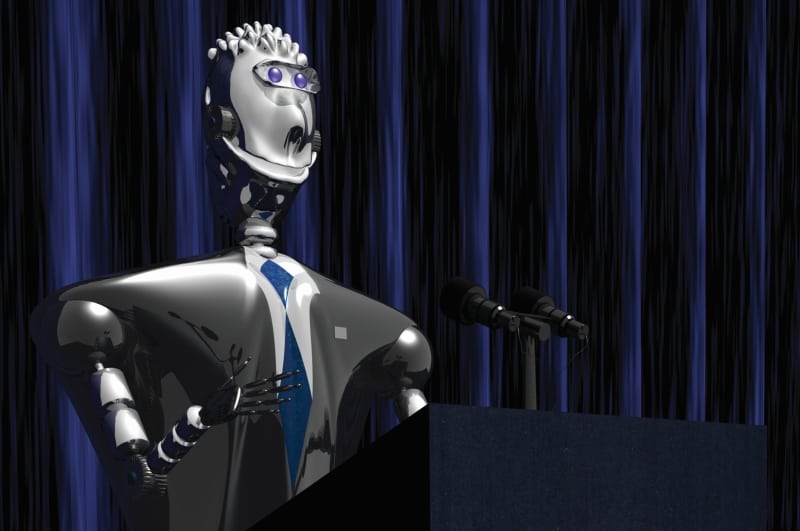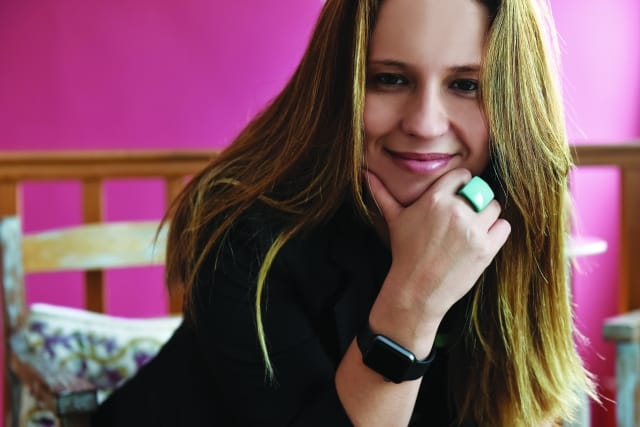Articles
Technological evolution and the behavioural changes arising from it pose not only the challenge of preparing children and young people, but also the difficult task of proposing an education which prepares adults for things such as the clarity of risks, the need to build the future, and the need to enable a more conscious attitude upon innovation processes.
Futurism has betrayed the future New technologies developed in an atmosphere of free enterprise were supposed to overcome the problems that we faced on a civilizational scale. Western societies emerged from the …
During Google’s developer May conference in Mountain View, California, Google presented an impressive and revolutionary ad announcing the launch of the new virtual assistant with six new voices in English. To illustrate the breakthroughs in artificial intelligence, CEO Sundar Pichai exhibited two telephone conversations between the virtual assistant and two employees from a beauty salon and a restaurant. With perfect intonation and phrasing, the assistant managed to easily pass itself as human and made a reservation in both establishments. The Turing Test was passed; it is now difficult to figure out who is machine and who is human.
Scientists are often asked: why, despite scientific and technological advancements, are diseases such as AIDS and cancer still affecting millions of people around the world? In response, science is constantly seeking to reverse this situation. Advancements on with CRISPR research (Clustered Regularly Interspaced Short Palindromic Repeats) attempts tocontribute to the treatment and prevention of these and other diseases.
Imagine living in a place where there are no rules, conventions or punishments of any kind. In the Westworld — a series produced and shown by HBO since 2016 — a group of people live with super advanced androids simulating human emotions; this raises the question of “who is what” within that world. Based on the 1973 film, with the same name, by the screenwriter Michael Crichton, creator of hits such as Jurassic Park (1990) and medical drama ER (1994), the complex plot full of twists and the big-name cast has captivated the public, making the series a hit for both audience and critics. What is the reason behind its success and the clues it tells about the future?
You leave home in the morning and go to the doctor. A robot offers you several possibilities for treatment based on your medical history, relating it to the most up-to-date methods and therapy. Then you go to the bank and another machine, based on accumulated data about your transactions and profile, offers you a loan, checks the data, and takes responsibility for all the procedures. You return home and your car, on the way, warns that you are tired and it is time to stop driving, to avoid an accident. If days later you return to the clinic and discover you need a transplant, the organ you will receive may be totally artificial, made up using chips. It seems like something from the movies, a science fiction reality; and even though they are cases of artificial intelligence, indicating the AI's possibilities.
July 2018. That time when the attention was focused on the World Cup in Russia. Shortly after a gruelling 2-1 loss to Belgium, the Brazilian national team bowed out of the tournament. Before the game had even finished, the witch-hunt had begun, with blame placed on the players and the coaching staff for poor performance and preparation. However, one target was chosen: midfielder Fernandinho, a Manchester City player. A sequence of mistakes on the pitch was the trigger for a flurry criticism on the midfielder’s social network profiles. The comments, however, went beyond setting out ideas; they were racist. Not one, not dozens, but thousands of hateful comments, open for anyone to read on Facebook, the most widely-used social network on the planet.
In the post-truth world, where Donald Trump is still one of the most powerful men on the planet, a current debate on people’s minds is about the true influence of social media in our decision-making.
When some pictures from Silicon Valley come up to our minds, we immediately associate those images with disruptive innovation concept. Some images from scientific journals show how artificial wombs will be able to gestate a baby, from fertilization until delivery, without human body. Moreover, this gestation process, still futuristic, could even be controlled by machines and algorithms, which would understand the need of each fetus to receive nutrients and physical-chemical stimuli. The disruptive innovation (the innovation that breaks up with consolidated standards and presents new proposals) make us to rethink our relationship with the world.
A well-crafted strategy combined with clear resources and objectives can act as the backbone of a rising or developing enterprise. In this context, (good) financial health is an objective to be pursued and planning in this area is essential. No matter how obvious these statements are, there are still many entrepreneurs who put their business at risk for lack of awareness on this issue.
It is late afternoon and the starlings — small birds that live in flocks in the north of England — organize themselves into their so-called murmuration. It goes beyond a song, or the characteristic noise of the synchronized wings flapping. It’s more than that; like a dance, before resting after a full day of hunting for food in the winter days, they connect together in light, choreographed movements. It is also unclear what causes these birds to initiate such a dance, however, physicists and biologists believe that each one, when moving, stimulates seven others to do the same around them, in a continuous progression. Soon, the seven become forty-nine, forty-nine become thousands, and a spectacle is created in the skies. They also become stronger and easily scare off hawks, the main predators of the species, fast in flight and up to four times larger.
Swimming against the tide, future thinker Ligia Zotini Mazurkiewicz believes “The next great revolution will be a moral one, led by children who are now sitting on our laps." It was with this strong belief that she created Voicers (www.voicers.com.br), a digital and educational start-up that works toward a noble purpose: to democratize the access to technology and unite voices that think about the future. The goal is to portray the future positively and exponentially, helping to avoid technological dystopias.
Articles
Swimming against the tide, future thinker Ligia Zotini Mazurkiewicz believes “The next great revolution will be a moral one, led by children who are now sitting on our laps." It was with this strong belief that she created Voicers (www.voicers.com.br), a digital and educational start-up that works toward a noble purpose: to democratize the access to technology and unite voices that think about the future. The goal is to portray the future positively and exponentially, helping to avoid technological dystopias.
During Google’s developer May conference in Mountain View, California, Google presented an impressive and revolutionary ad announcing the launch of the new virtual assistant with six new voices in English. To illustrate the breakthroughs in artificial intelligence, CEO Sundar Pichai exhibited two telephone conversations between the virtual assistant and two employees from a beauty salon and a restaurant. With perfect intonation and phrasing, the assistant managed to easily pass itself as human and made a reservation in both establishments. The Turing Test was passed; it is now difficult to figure out who is machine and who is human.
In the post-truth world, where Donald Trump is still one of the most powerful men on the planet, a current debate on people’s minds is about the true influence of social media in our decision-making.
Social inequality, major inheritances, and the fragility of actual capitalism concept are forcing people to rethink the actual capitalism. Inequality is the definition of economy in a time marked by the lack of opportunities. Just to give some examples of how this translates into practice, of all the wealth generated in the world in 2017, 82% went into the hands of the richest 1% of the planet. On the other hand, the poorest half of the global population - 3.7 billion people - did not get anything. In Brazil, there are five billionaires whose wealth is equivalent to that of the poorest half of the country, reaching U$ 2 trillion in 2017 - 13% higher than the previous year. At the same time, the poorest 50% of Brazil saw their ‘wealth’ reduced over the same period, from 2.7% to 2%. The data came from NGO OXFAM, an international organization that defends and encourages sustainable development since the 1950s.
Futurism has betrayed the future New technologies developed in an atmosphere of free enterprise were supposed to overcome the problems that we faced on a civilizational scale. Western societies emerged from the …
Scientists are often asked: why, despite scientific and technological advancements, are diseases such as AIDS and cancer still affecting millions of people around the world? In response, science is constantly seeking to reverse this situation. Advancements on with CRISPR research (Clustered Regularly Interspaced Short Palindromic Repeats) attempts tocontribute to the treatment and prevention of these and other diseases.
A well-crafted strategy combined with clear resources and objectives can act as the backbone of a rising or developing enterprise. In this context, (good) financial health is an objective to be pursued and planning in this area is essential. No matter how obvious these statements are, there are still many entrepreneurs who put their business at risk for lack of awareness on this issue.
Technological evolution and the behavioural changes arising from it pose not only the challenge of preparing children and young people, but also the difficult task of proposing an education which prepares adults for things such as the clarity of risks, the need to build the future, and the need to enable a more conscious attitude upon innovation processes.
You leave home in the morning and go to the doctor. A robot offers you several possibilities for treatment based on your medical history, relating it to the most up-to-date methods and therapy. Then you go to the bank and another machine, based on accumulated data about your transactions and profile, offers you a loan, checks the data, and takes responsibility for all the procedures. You return home and your car, on the way, warns that you are tired and it is time to stop driving, to avoid an accident. If days later you return to the clinic and discover you need a transplant, the organ you will receive may be totally artificial, made up using chips. It seems like something from the movies, a science fiction reality; and even though they are cases of artificial intelligence, indicating the AI's possibilities.
When some pictures from Silicon Valley come up to our minds, we immediately associate those images with disruptive innovation concept. Some images from scientific journals show how artificial wombs will be able to gestate a baby, from fertilization until delivery, without human body. Moreover, this gestation process, still futuristic, could even be controlled by machines and algorithms, which would understand the need of each fetus to receive nutrients and physical-chemical stimuli. The disruptive innovation (the innovation that breaks up with consolidated standards and presents new proposals) make us to rethink our relationship with the world.
It is late afternoon and the starlings — small birds that live in flocks in the north of England — organize themselves into their so-called murmuration. It goes beyond a song, or the characteristic noise of the synchronized wings flapping. It’s more than that; like a dance, before resting after a full day of hunting for food in the winter days, they connect together in light, choreographed movements. It is also unclear what causes these birds to initiate such a dance, however, physicists and biologists believe that each one, when moving, stimulates seven others to do the same around them, in a continuous progression. Soon, the seven become forty-nine, forty-nine become thousands, and a spectacle is created in the skies. They also become stronger and easily scare off hawks, the main predators of the species, fast in flight and up to four times larger.
Center of Excellence in Machine Learning (CoE-ML) — developed by Unesp researchers — aims to transform the market through Artificial Intelligence partnerships and solutions. Reducing the gap in the relationship between universities and the market, facilitating financial support for developing artificial intelligence projects, and enabling knowledge about AI to reach more people and areas of society; these are the three objectives of the Center of Excellence in Machine Learning (CoE-ML), coordinated by the director of the Scientific Computation Center of the Universidade Estadual Paulista, UNESP professor Sérgio Novaes.

